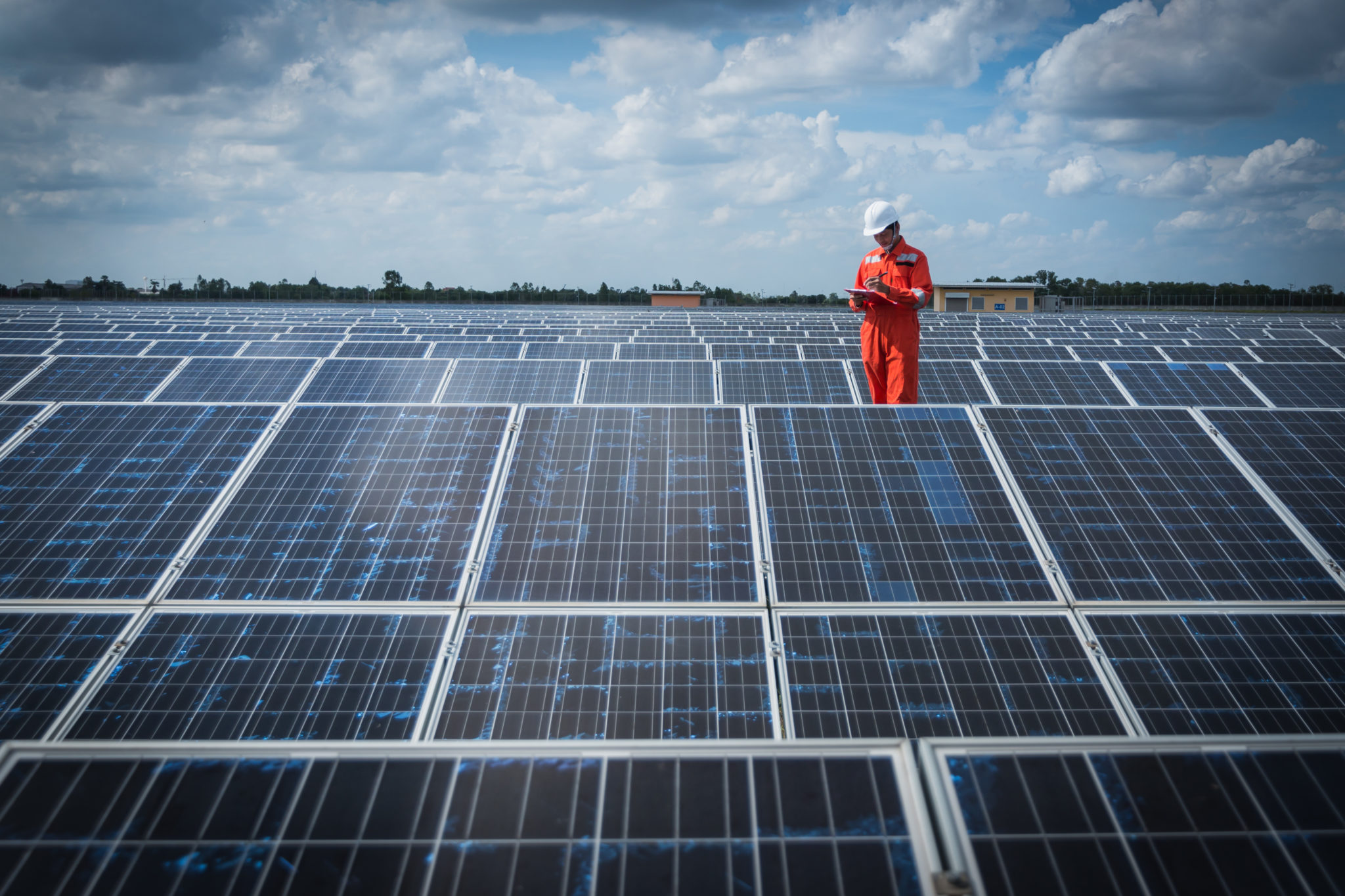The Energy Transition | National Grid announces accelerated connection dates for over 200 projects
Published on 7th May 2024
Welcome to our top picks of the latest energy regulatory and market developments in the UK's transition to net zero.

This week we look at the acceleration of connection dates for over 200 projects, Ofgem and DESNZ's consultation response on consumer protection in the heat network, further investment into the Xlinks interconnector, and more.
Electricity networks bring forward connection dates of over 200 projects
National Grid has announced that 203 clean energy projects, with a combined capacity of 7.8GW, have had their connection offer dates brought forward by up to 10 years.
The new connection dates were secured as part of the Technical Limits programme, a collaborative project between National Grid Electricity Transmission, the Energy Networks Association, the Electricity Systems Operator and Distribution Network Operators (DNOs). The programme allows projects to connect to lower voltage distribution networks prior to reinforcement of the high voltage transmission network. This forms part of the ongoing collaborative effort between industry, Ofgem and the government, to speed up connections to the grid. This initial tranche of accelerated projects form part of the first phase of the Technical Limits programme, with further phases and analysis planned.
To deliver the accelerated offers, DNOs have agreed new power flow limits across the boundaries between the transmission and distribution networks. This allows DNOs to offer connection dates before transmission network reinforcements are complete, on the understanding that the DNO can limit flows from the project as may be needed according to network constraints.
The 203 projects that have received accelerated connection offers have an average export curtailment of 22% per year. A further 190 projects are in line to receive accelerated offers as they progress through the connection offer process. The expectation is that this interim arrangement will be replaced in the long term as network capacity increases.
Alice Delahunty, President of National Grid Electricity Transmission, commented that the Technical Limits programme "forms part of a wider range of measures to help connect projects faster, including upgrading the grid – the biggest upgrade in a generation – and working collaboratively with industry, government and the regulator on reforms to the connection process'".
Ofgem and DESNZ publish response to consultation on consumer protection in the heat network
Ofgem and the Department for Energy Security and Net Zero (DESNZ) have published a response to their joint consultation from August 2023, which posed 75 questions to stakeholders in the heat network.
Questions in the original consultation were centred around consumer protection rights in the market and compliance requirements for heat network operators and suppliers. The questions were intended to address current issues around reliability and disproportionate pricing in the heat network.
With reference to stakeholder input, the government's response includes a number of new regulations which will be introduced from 2025. These include:
- Ofgem operating as regulator of the heat network market. Ofgem will set notification requirements and have authority to intervene where heat suppliers and heat network operators do not meet comply. Their powers will extend to enforcement action against regulated entities that breach requirements.
- Designated "heat network zones", in areas where heat networks are expected to be the lowest cost solution for decarbonising heat. This will be done via powers under the Energy Act 2023 and will mean the government can require certain buildings in these zones to connect to district heat networks within a certain timeframe.
- As part of the first tranche of consumer protection, standards of conduct and rules on transparency of information, complaints handling, and measures for the protection of vulnerable customers, which will be provided with support from the Energy Ombudsman and from Citizens Advice.
The government will not introduce a price cap or profit regulation mechanism as part of price regulation proposals. The consultation stated that "the benefits of a price cap are outweighed by the risks to consumers, given the nascent and diverse state of the market". This was echoed by respondents: 55% of which agreed with the government's position, 7% disagreed and 38% did not answer.
Ofgem and DESNZ will publish their response to a separate consultation on heat network zoning in England in due course. Proposals for zoning are then expected to dovetail with consumer protection measures to framework legislation aimed at introducing the zoning heat network model in England in 2025.
Cathryn Scott, Ofgem director for enforcement and emerging issues said that Ofgem are "working with government to design and deliver a regulatory regime that will be able to deliver improvements for heat network customers".
Over $24m funding secured for Xlinks Morocco interconnector project
The Xlinks Morocco-UK Power Project, a new electricity generation facility entirely powered by solar and wind energy co-located with a battery storage facility, has recently announced that it has secured over $24 million from multiple investors.
The interconnector initiative proposes to link the UK grid with solar farms in Morocco's renewable-energy rich region of Guelmim Oeud Noun via 4000km of HVDC sub-sea cables. The interconnector route will skirt Portugal, Spain and France before linking to the UK. The project is expected to generate 11.5GW of zero carbon electricity from solar and wind to deliver up to 3.6GW of clean energy to the UK. Alongside its solar and wind output, the project will also have a 22.5GWh/5GW battery storage facility.
The UK government has labelled the initiative as a project of national significance in addressing the UK's pressing electricity demand, and the investment aligns with the Climate Change Committee's projections that UK electricity demand will double by 2050. The project aims to address the deficit in domestic renewable energy generation in the UK at times of low winds and intermittent periods of sun, especially during periods of low offshore wind generation. By utilising more favourable solar and wind resources in Morocco, where the project's developers claim the shortest winter day still offers around 10 hours of sunlight, the intention is to provide production profiles that address the burgeoning needs of the UK power market.
The Great Grid Partnership: National Grid's new initiative to boost UK supply chains
National Grid has launched its Great Grid Partnership. The partnership aims to deliver nine Accelerated Strategic Transmission Investment projects to support the Great Grid Upgrade (which we have reported on previously), which will connect 50GW of offshore wind by 2030.
The partnership includes seven National Grid supply chain partners, including two design companies, WSP and a joint venture between Aecom and ARUP, and five construction companies including Laing O'Rourke, Morgan Sindall Infrastructure and Morrison Energy Services. The partnership's focus is on the design and construction work to support the infrastructure required for the Great Grid Upgrade.
The aim of the partnership is for the suppliers to work collaboratively to speed up the delivery of national electricity infrastructure by pooling resources, skills, and experience in order to deliver quicker and more economic projects.
President of Strategic Infrastructure at National Grid, Carl Trowell has stated that the "chosen partners have an established history of successful collaboration in delivering major projects and enabling innovation to thrive".
It is estimated that the increased investment in the electricity network in the UK to bring about upgrades will contribute an average of £18.4 billion to GDP and support around 220,000 jobs every year for the next 11 years.
"First-of-a-kind" hydropower technology project in Devon announced
UK start-up RheEnergise has announced the development of a "first-of-its-kind" long-duration hydrogen energy storage demonstrator system at the Sibelco mine in Cornwood, near Plymouth.
Instead of using water, the demonstrator uses a fluid developed by RheEnergise which is two and a half times denser than water and can provide two and a half times the amount of energy when compared to a conventional low-density hydro-power system used elsewhere in the world.
The High-Density Hydro demonstrator has a peak power production of 500kW and will support the mining operations in Cornwood at times of high energy demand, while also supporting the mine in the decarbonisation of its operations. It can work at elevations of 100 metres or less, making it more geographically versatile than conventional systems which require much steeper terrain.
The project is being supported through the UK government's Longer Duration Energy Storage Demonstration Programme, alongside support from Devon County Council and Sibelco. RheEnergise hopes that the project in Cornwood will enable the development of further commercial-scale projects in the UK and globally.
Work to build the demonstrator will start imminently, with commissioning expected in September.
This article was written with the assistance of Khushal Thobhani, Jessica Sawford, Charlotte D'Arcy, Luke Hopper and Hannah Bradley, trainee solicitors.






